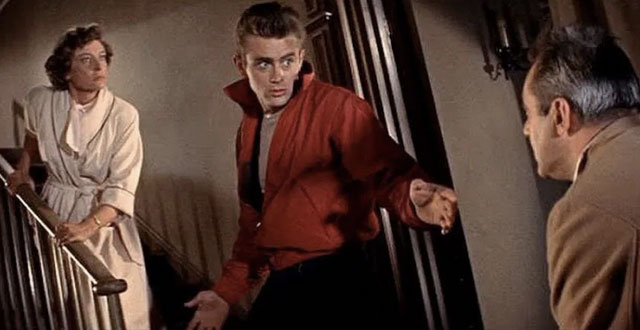
NOTES ON FILM & RESTORATION
03/12/2021A few days ago, a Tweet appeared claiming that Pepe LePew, a character from the late 40s intended to be a parody of a continental seducer (and widely understood as such when I was a kid), contributed to rape culture…which was reported in the press…which was followed by the removal of an entire scene with Pepe LePew from a forthcoming film…which prompted claims from the studio that their decision had nothing to do with the Tweet and that they were planning on doing it anyway.
This crazy series of events got me thinking about a tendency that came into being a long time ago and that has expanded and broadened over the years and become a standard way of understanding ourselves within what we call the culture. That is: the tendency to see all human beings as either sponges or receptacles or combinations thereof, open to receive every ideology delivered in disguised form by means of this or that movie or song or book or cultural product. It is now regularly spouted as a truism by television commentators and podcast hosts, pop stars and journalists, politicians of every stripe and late night emcees, academics and authors, and—based on personal observation—average citizens in Park Slope, Brooklyn.
Right now, there’s an obsessive amount of energy directed at images in popular culture, and in older movies in particular. As targets, old movies strike me as the very lowest of low-hanging fruit, particularly when you isolate certain characters or incidents, freeze them in place and out of time, and strip them of nuance, irony and context. Or, as the director of Punisher: War Zone did in yet another Tweet, dismiss all older films out of hand because they “rarely hold up” and are “racist and sexist AF.” As Charlie Brown would say, *sigh*.
It certainly gets a lot of attention to point an accusing finger at Pepe LePew, but wouldn’t that energy be better spent keeping the public focused on the horribly high volume of sexual harassment complaints filed by women in the fast-food industry, or by hotel and motel housekeepers? And if we’re just talking about images, surely the commercial and fashion industries deserve more attention than they’ve gotten.
Do the majority of people, particularly those of us who know and love cinema and its history, really take all old movies literally and uncritically, and swallow their conventions whole? Hardly. One can love a film enough to see it in all its dimensions, and that includes reflections of the culture as it was and no longer is. I love My Darling Clementine, but I wouldn’t dream of making a film exactly like it and I don’t know anyone else who would. There are countless visual and behavioral grace notes in that film, embedded within an idea of the country as it once officially interpreted and chose to picture itself and no longer does. Rebel without a Cause is close to my heart, not despite the pathologically caricatured parents but because of them: those crude character conceptions cater so shamelessly to certain attitudes of the time that they have become historical artifacts, and they have the paradoxical effect of setting off the many beauties of the film to even greater effect. Shadows is a great American film, but I don’t know any modern filmmaker who would follow John Cassavetes’ lead in casting an Italian-American actress as a light-skinned African-American character—in fact, Cassavetes himself probably wouldn’t, either. And that’s not to slight Leila Goldoni’s performance in the film, which is stunning.
From a practical point of view, as any parent can tell you, the most expedient way to direct attention to something is to hide, banish, or forbid it. You can bet that as we speak, Pepe LePew cartoons are being viewed all across the country.
Outside of outright cultural genocide, all efforts to edit or efface the past are ultimately doomed to failure. The best thing we can do is to learn from the past, and to constantly look more and more closely at it, without sentimentality, and see it more and more fully.
Which is one of the reasons that film preservation is so vitally and crucially important. Actually, make that: essential.
- Kent Jones
Follow us on Instagram, and Twitter!
MY DARLING CLEMENTINE (1946, d. John Ford)
Preserved by UCLA Film and Television Archive and the Museum of Modern Art in cooperation with 20th Century Fox. Funding provided by American Movie Classics and the Film Foundation.
REBEL WITHOUT A CAUSE (1955, d. Nicholas Ray)
Restored by Warner Bros. in collaboration with The Film Foundation. Restoration funding provided by Warner Bros, Gucci, and The Film Foundation
SHADOWS (1959, d. John Cassavetes)
Restored by UCLA Film & Television Archive in cooperation with Faces Distribution Corporation with funding provided by The Ahmanson Foundation, The Film Foundation and the Hollywood Foreign Press Association.
The Film Foundation
